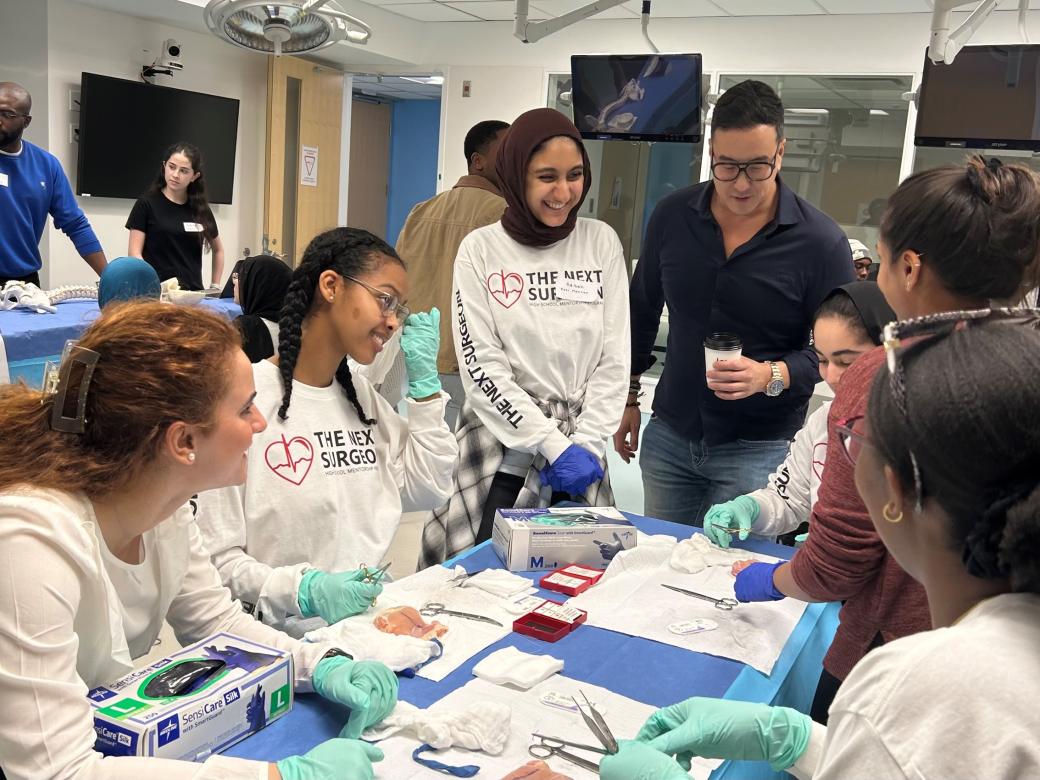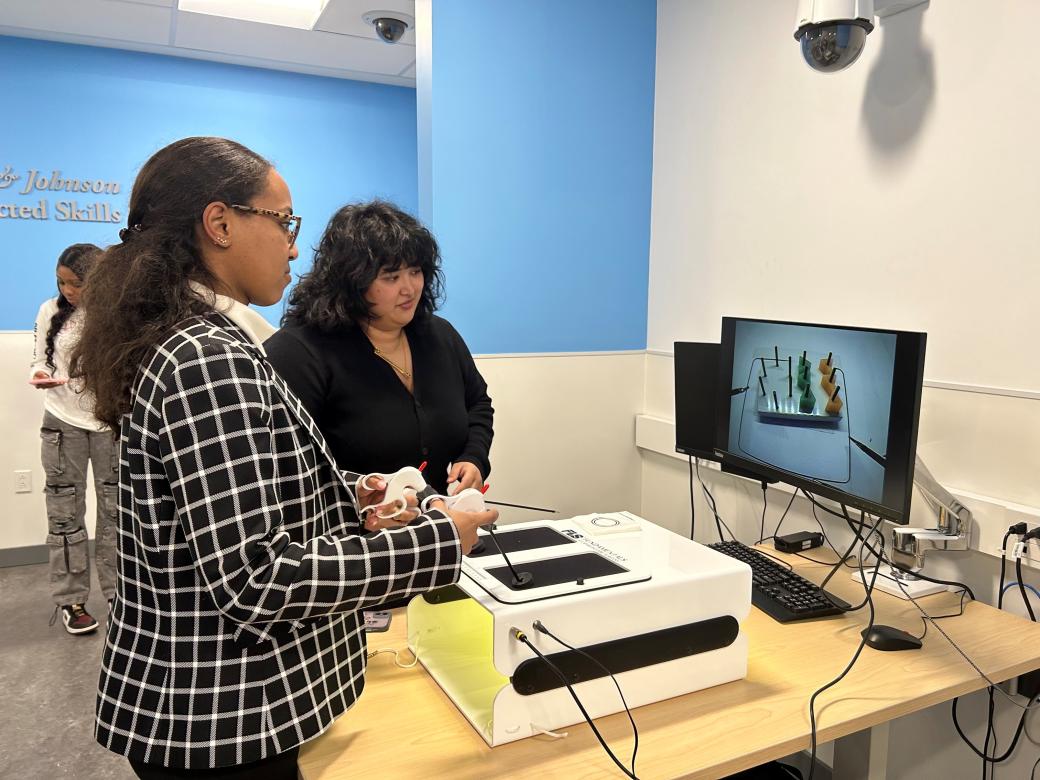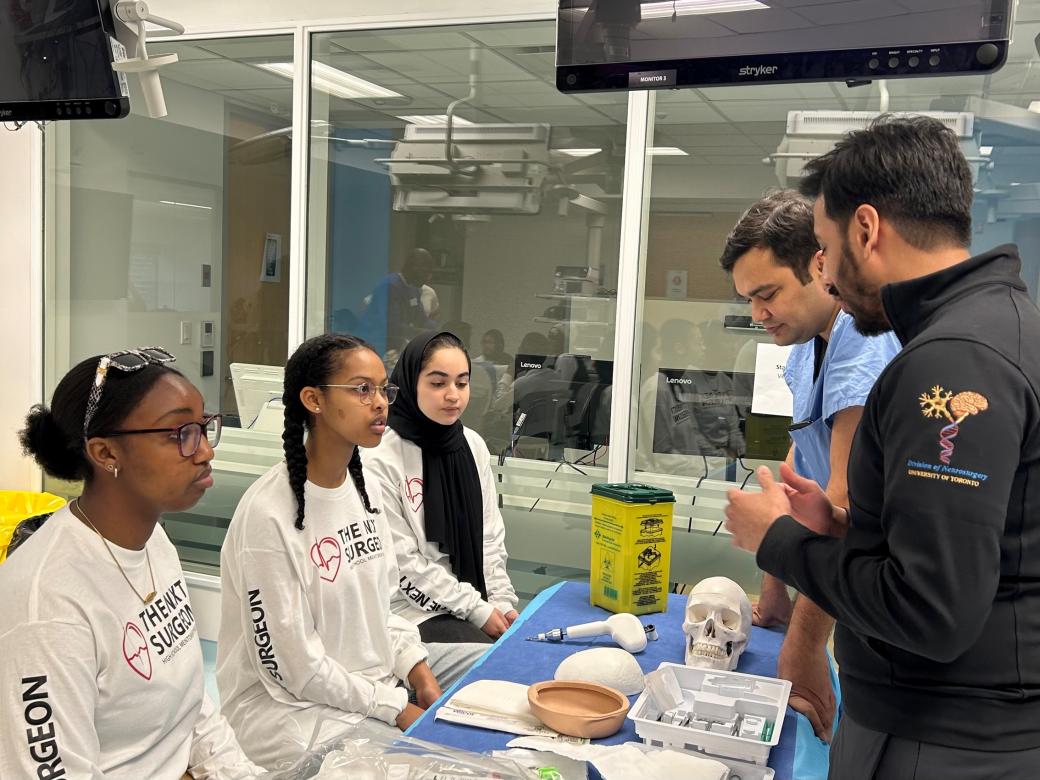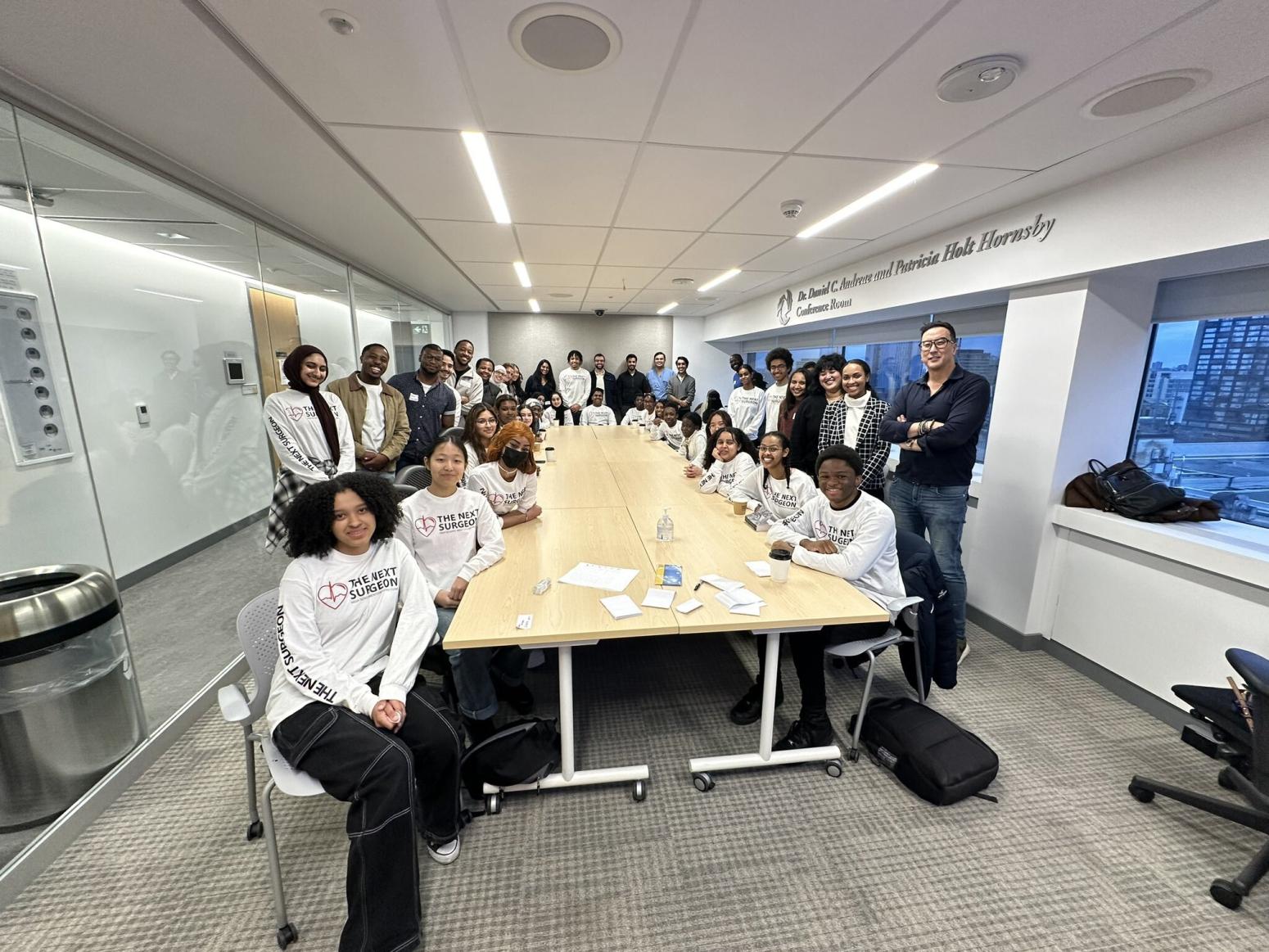The Next Surgeon Program: Inspiring TCHC youth towards a career in medicine
The Next Surgeon program gives TCHC high school tenants an exciting glimpse of what it’s like to work in the medical field through workshops, interactive sessions, and mentorship opportunities.
Walking through the hallways of The Michener Institute of Education at University Health Network, a medical resident saw us and motioned for us to follow. We were there to attend one of the weekend sessions put on by The Next Surgeon program. It is an innovative series of events that gives TCHC youth a glimpse of what it’s like to work in the medical field through workshops, interactive sessions, and mentorship opportunities.
The resident led us into a simulated operating room, where groups of program participants had already gathered around one of the four activity stations located in each corner. The participants are high school students in grades 10 and 12, and all listened intently as a medical resident explained the tools of the trade.
At one of the stations, a medical student showed a participant how to handle a special drill on a plastic skull. This demonstrated how pressure could be relieved from the brain. In the corner of the room, young people sewed up slices of raw chicken breast to imitate the technique of suturing. Another exercise was in hand-eye coordination. One of the participants held up two thin rubber bands she had sewn together for her instructor to see. “Great job! Are you sure you haven’t done this before? You’re better at sewing than me!” he exclaimed.

The Next Surgeon program offers TCHC youth a seat at the table
During a break, we sat down with Dr. Robert (Bobby) Yanagawa to talk about The Next Surgeon program and its impact on TCHC youth. Dr. Yanagawa is the Division Head of Cardiac Surgery at St. Michael’s Hospital, and Program Director of the Residency Program at the University of Toronto. He oversees The Next Surgeon program, which is delivered in partnership with the University of Toronto, Ethicon (a Johnson & Johnson company), and Unity Health Toronto. This program is unique as it invites TCHC youth to immerse themselves in the world of cardiac surgery for an eight-week period.
Dr. Yanagawa also wants them to realize they have the mindset and physical ability to become medical doctors. “If you told me when I was in high school that I was going to be a heart surgeon, I would have laughed,” confided Dr. Yanagawa. “It was not where I was headed.” He has benefited from career guidance along the way, and is convinced that with the right amount of support and learning opportunities, youth in marginalized communities can also see their dreams become a reality.
“What I want them to see is people that look like them, ethnicity-wise, religion, colour, and be inspired to say: oh, there’s a physician, there’s a researcher, there’s a surgeon that looks like me and has done it – it’s within my grasp, there’s nothing that says I can’t accomplish this. I want them to gain that confidence,” he said.

A program participant tries a hand-and-eye coordination activity
Maryam Abbasi is a program participant and Muslim woman who would like to pursue a career in family medicine someday. She agrees with Dr. Yanagawa that youth need to see others who have reached their career goals. “I feel like for someone who is from community housing it’s a bit more difficult, because not only is there a lack of representation, but also a lack of people that enter these fields,” she said. “I don’t know anybody that’s been in housing and become a doctor.”
As a fourth-year medical student at the University of Toronto, Akachukwu (Aka) Nwakoby says that in the past there’s been very poor recruitment of Black and minority individuals in surgical research. He believes that timing is critical to fix this. “High school is a time in which the trajectory of a lot of these students can be shaped and supported. Sometimes when you get to the undergraduate level it might be too late.” According to Aka, exposing young people to the best mentors in general surgery, neurosurgery, cardiac surgery, or emergency medicine can help them form valuable contacts. “I want youth to be inspired, I want them to feel that they can be mentored, and I want them to create an impact in their community afterwards,” he said.

Program participants listen to a medical resident explain a surgical procedure
Maryam says that being in The Next Surgeon program has been a motivating and uplifting experience for her. It has ignited her passion in science and shown her that anything is possible with hard work and determination. “Just because you are from subsidized housing, it doesn’t mean you’re any less than someone who’s not. Your economic status shouldn’t stop you from achieving your goals,” she said.
Stacy Golding, a TCHC Community Service Coordinator, is also pleased with the results of the program. “The Next Surgeon program offers our TCHC youth a seat at the table,” she said. “By fostering a supportive environment for learning and showcasing diverse voices, this program encourages our youth to realize that their dreams are achievable and that they too can have a positive impact on their community and in the field of medicine.”
To find out more about The Next Surgeon program and how to register for the next cohort, visit torontohousing.ca/next-surgeon.
Watch the video to hear from some of the program participants.

